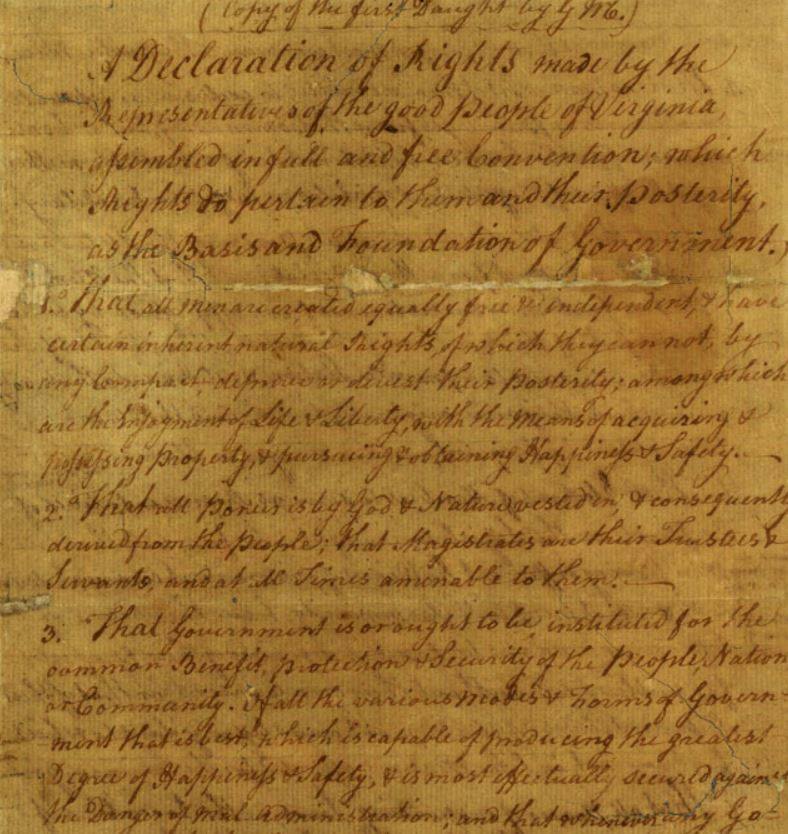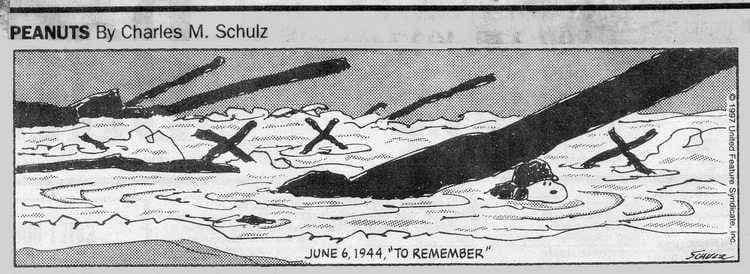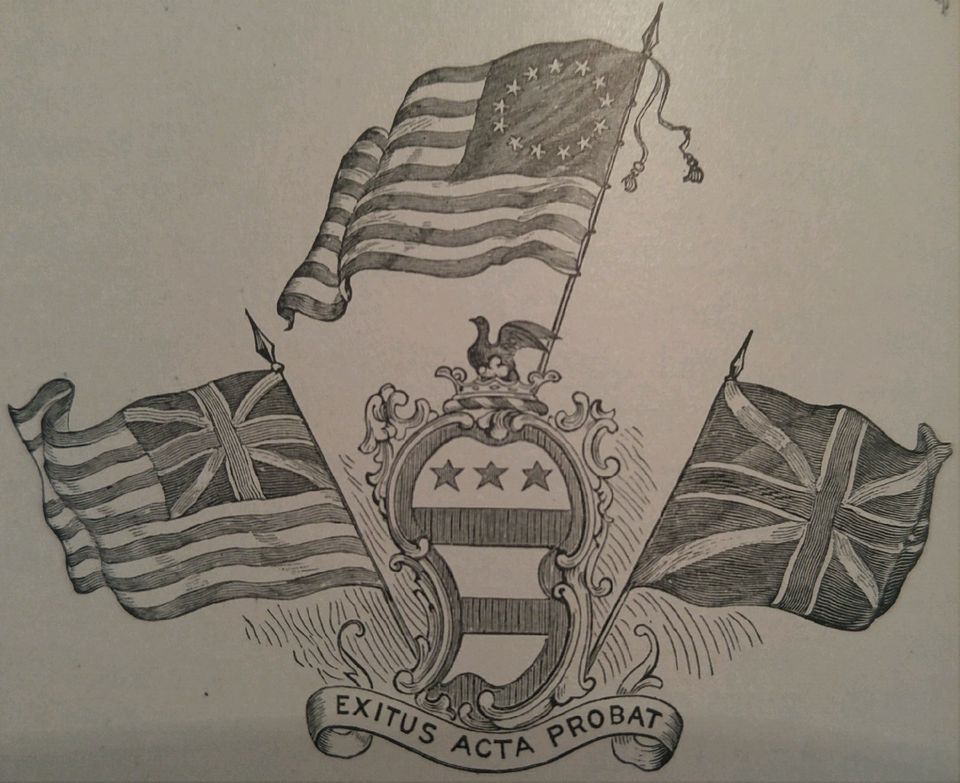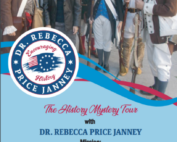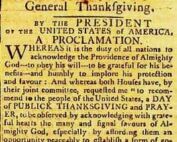June 12, 1776, the Virginia Constitutional Convention approves George Mason’s Bill of Rights. Why should we care?
By Daniel Sheridan
Recurrence to Fundamental Principles, Love, and Charity: The Foundations of a Free Society – By Daniel Sheridan
1776 was the year of the Declaration of Independence and constitution-making in the new states. One question Americans couldn’t answer yet: Who had the right to declare what the law shall be?
Historian Forrest McDonald describes the problem facing the Patriots:
“Of the eight constitutions established in 1776, six were drafted by bodies especially elected for the purpose, but they were never submitted to anyone for ratification…Proclamation of a constitution by a legislative order was scarcely a satisfactory procedure, for what one legislative body could enact another could repeal. To cope with this problem, some early constitution makers appended to their constitution a list of principles that, they declared, no government could properly violate.â€
George Mason of Virginia wrote the first of these lists of principles. On this day, June 12, 1776, the “Virginia Declaration of Rights,†or “Bill of Rights,†was approved by the Virginia Constitutional Convention. This Bill of Rights became the preamble to the Virginia Constitution. Other states followed Virginia’s example, using Mason’s work as a template while making revisions of their own, yet all with one voice proclaiming their shared beliefs about the role of government and man’s natural rights. They guaranteed, for instance, freedom of speech, of the press, and religious worship. Individual liberty was the fundamental law. “A freeman’s remedy against a restraint of his liberty ought not to be denied or delayed,†declared the North Carolina Constitution. They also called for representative government, trial by jury, protection against unreasonable searches of people and papers, eliminating cruel and unusual punishment, and securing other fundamental liberties. Thomas Jefferson’s wording in the Declaration of Independence and the first ten amendments of the U.S. Constitution reflects Mason’s work.
The Virginia Bill of Rights contains 16 declarations. George Mason wrote the first 15; Patrick Henry wrote the 16th declaration concerning religious liberty.
Declaration 15: “That no free government, or the blessings of liberty, can be preserved to any people, but by a firm adherence to justice, moderation, temperance, frugality and virtue, and by frequent recurrence to fundamental principles.â€
The word “recurrence†means “to resort to,†“to return to,†“to think about.†Mason is reminding us that a government based on freedom principles won’t last long unless the people are continually thinking about and applying correct principles to every area of life. Principles guide us in making the right decisions personally and politically. When Mason wrote the Virginia Declaration of Rights, these universal principles were well known, believed, and applied. I’m not saying they employed them perfectly, especially with slavery still in existence. Still, they got to know and acknowledged these principles and dared to proclaim them as our country’s foundation publicly. Unfortunately, our practice doesn’t always match our beliefs, but if we keep the faith in our hearts, we will eventually train our feet to follow – whatever the cost. Part of the American experience is living up to our principles. Before we point fingers at those in the past who lived in different times and circumstances, let’s ask ourselves: Are WE living up to these principles today?
Patrick Henry concludes the Virginia Bill of Rights with Declaration 16:
“That religion, or the duty which we owe to our CREATOR, and the manner of discharging it, can be directed only by reason and conviction, not by force or violence; and therefore all men are equally entitled to the free exercise of religion, according to the dictates of conscience; and that it is the mutual duty of all to practice Christian forbearance, love, and charity, towards each other.â€
The lesson is clear. America won’t remain free unless “We the People†practice these two things:
1. Think about, resort to, and return to fundamental principles.
2. Practice Christian forbearance, love, and charity towards each other.
On June 12, 1776, the Virginia Constitutional Convention approved George Mason’s Bill of Rights.
—
Daniel Sheridan

